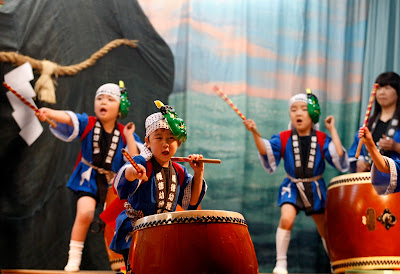Japan,One of most famous Geisha performance centers and training places - about 200 square meters of wooden building, was totally destroyed by firein the early morning on Wednesday, 26th May at Awara Onsen Fukui prefecture, about 350 kilometers west of Tokyo in Japan.
They estimated over 10 million Yen (11,054 US$) damage by burn that amount including Geisha performer’s traditional costume (Kimono), headdress and instrument.
 The Geisha entertainment center and training place locates hot spring resort city of Awara in Fukui prefecture. Awara Geisha performance center held a special event for the tourist to make them familiar with Geisha performance.
The Geisha entertainment center and training place locates hot spring resort city of Awara in Fukui prefecture. Awara Geisha performance center held a special event for the tourist to make them familiar with Geisha performance.Geisha is a traditional Japanese artist-entertainer and one of a symbol of Japanese culture they entertains customers singing, dancing and playing instruments.
‘Gei' means arts or performances and ‘Sha’ means people in Japanese. Geisha were most popular in the 18th and 19th centuries in Japan.
‘Gei' means arts or performances and ‘Sha’ means people in Japanese. Geisha were most popular in the 18th and 19th centuries in Japan.
 Geisha in Awara Onsen have more than 120 year-old history. It uses to be very popular and there were more than 250 Geisha. However, now the number decreased grammatically up to 20, because people lifestyles have been changed and reduced opportunities for Geisha.
Geisha in Awara Onsen have more than 120 year-old history. It uses to be very popular and there were more than 250 Geisha. However, now the number decreased grammatically up to 20, because people lifestyles have been changed and reduced opportunities for Geisha.All Right @ Buddhika Weerasinghe










































